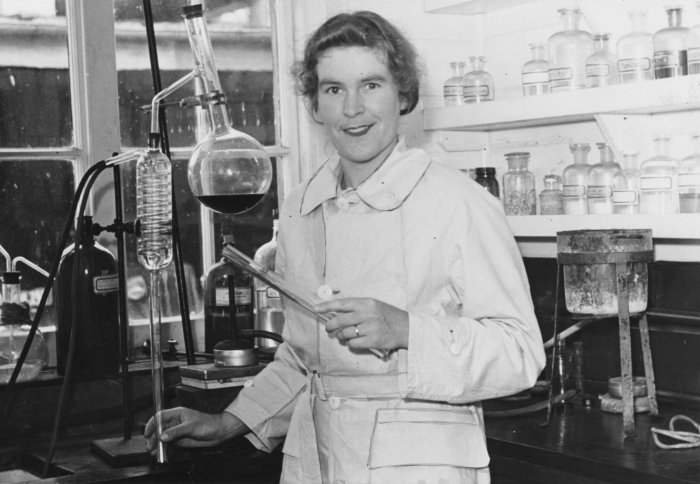New bursaries to boost women in science
by Jon Narcross

Imperial has launched an exciting new bursary scheme for women scientists thanks to the legacy of pioneering alumnus Dr Greta Stevenson.
The Stevenson Fund, named after its benefactor Dr Greta Stevenson, will fund three bursaries of up to £7,500 each year. These bursaries will be available to women at the College studying degrees in Physics, Chemistry, Maths, Life Sciences and Geology to fund an international research placement with a leading female scientist at another institution.
Thanks to Dr Stevenson’s generous support we’re able to offer these bursaries to inspire the next generation of female scientists.
– Professor Debra Humphris
Vice Provost (Education)
Dr Stevenson was a distinguished botanist, mountain climber and adventurer who led the first all-women party to ascend Mount Earnslaw.
Professor Debra Humphris, Vice Provost (Education) and Chair of the Stevenson Fund Panel said: “Greta Stevenson was an inspiration to many through her research, teaching and sporting activities. She broke glass ceilings and inspired many during her lifetime, and – through these bursaries – leaves a legacy of opportunity for the next generation of women in science.
“Thanks to Dr Stevenson’s generous support we’re able to offer these bursaries to inspire the next generation of female scientists, allowing them to broaden their academic horizons and carry out research abroad.”
The Stevenson Fund is aimed at assisting the long-term scientific careers and ambitions of women in key scientific disciplines in which there is significant female under-representation. By financing the scholarships for international collaboration the fund hopes to encourage reciprocal visits in the future building up international networks amongst female students and researchers.
Dr Greta Stevenson
Dr Greta Stevenson was a New Zealand botanist and mycologist. Graduating with an MsC from the University of Otago she was an accomplished alpine climber and made the first significant climb by an all-woman party ascending New Zealand’s Mount Earnslaw in 1933.
Arriving at Imperial in 1934 Greta completed her PhD under a Shirtcliffe fellowship in Mycology and Plant Pathology where she was described as an ‘assertive, independent individual, whose love of plants and enthusiasm for the outdoors made her an inspiring teacher’ Greta went on to enjoy a long career as a botanist undertaking various research posts in both the UK and abroad.
Article text (excluding photos or graphics) © Imperial College London.
Photos and graphics subject to third party copyright used with permission or © Imperial College London.
Reporter
Jon Narcross
Communications and Public Affairs